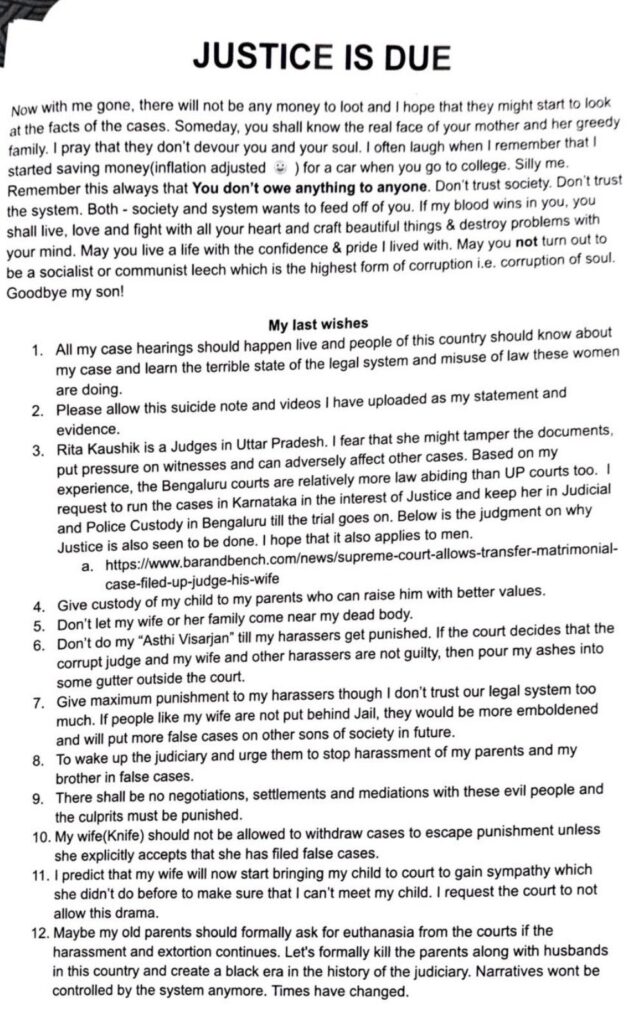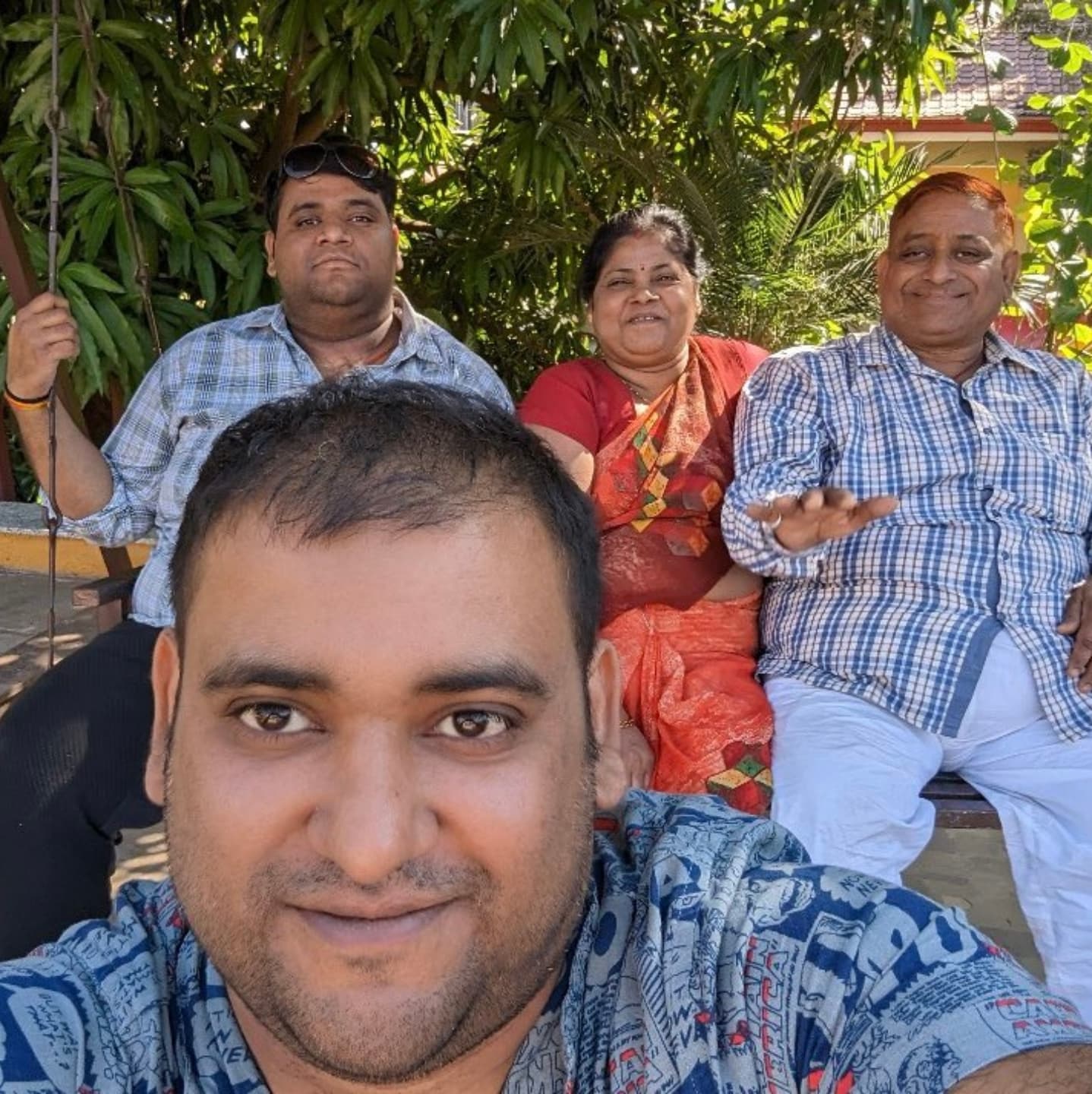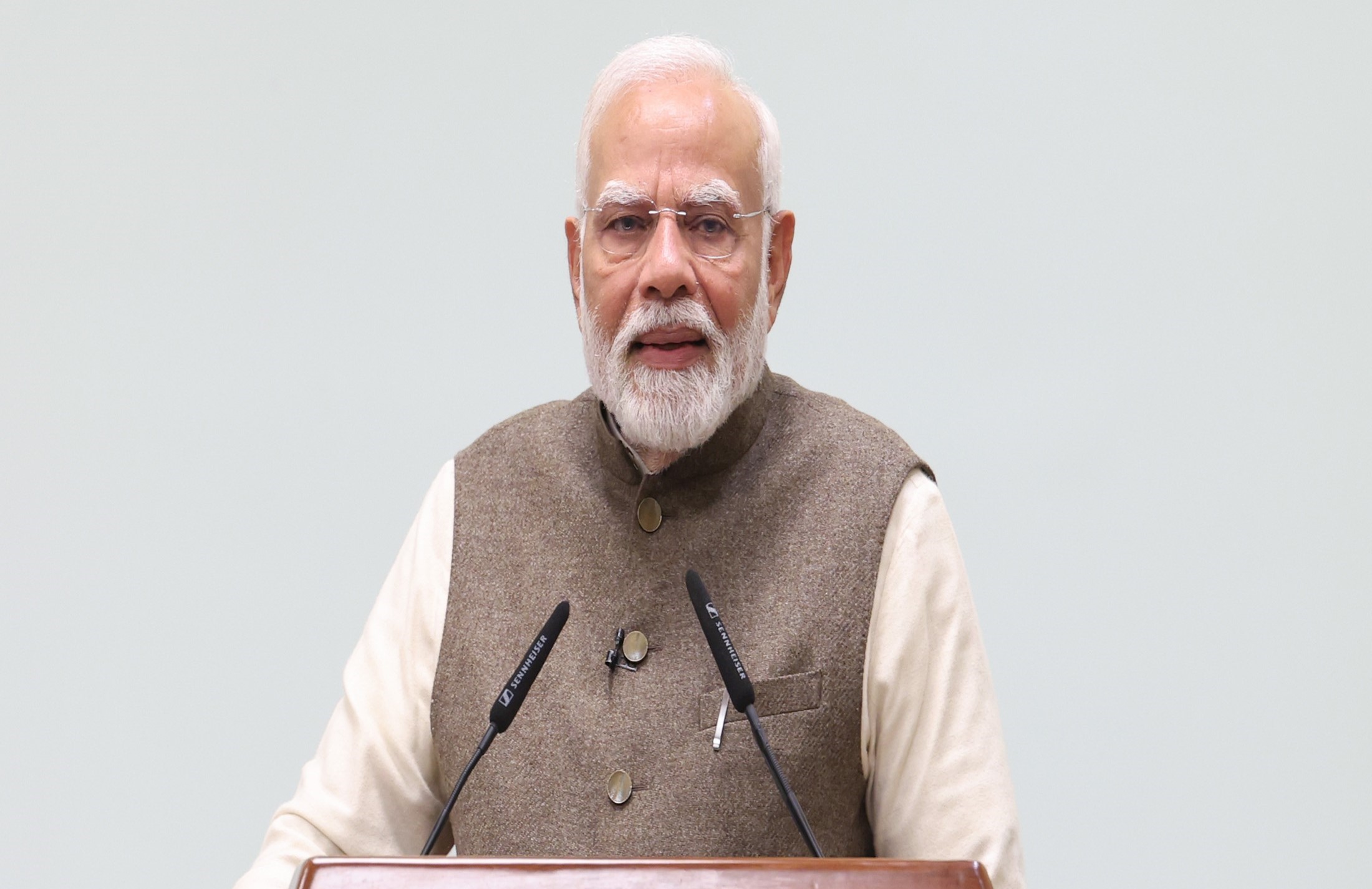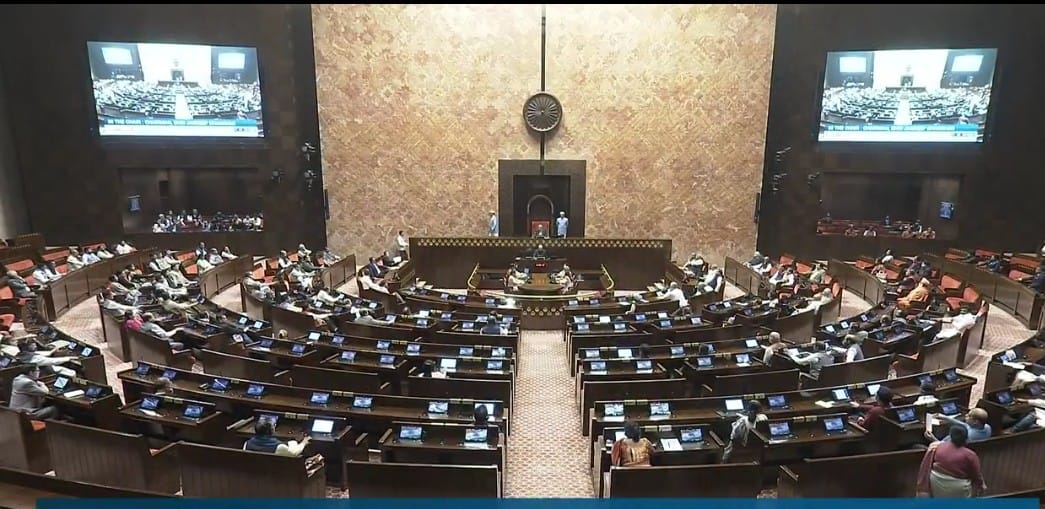North News
Chandigarh, December 11
The tragic death of Atul Subhash, a 34-year-old software engineer, has reignited debates about the challenges men face in marital disputes and the perceived inequities of the legal system in India. Subhash, originally from Uttar Pradesh, was found dead in his Bengaluru apartment, leaving behind a 20-page suicide note and a video that detailed his anguish and accusations against his estranged wife, her family, and the judiciary.
Titled “Justice is Due,” Subhash’s note not only expressed his despair but also served as a manifesto for legal reform. The case has prompted conversations nationwide about the need for a more balanced approach to addressing domestic disputes.
A Letter Full of Pain and Purpose
Subhash’s suicide note was a deeply personal yet scathing commentary on the system he felt had failed him. In it, he addressed his young son, warning him about the “greedy” nature of his mother and her family while encouraging him to live with confidence and pride. “Remember, you don’t owe anything to anyone,” he wrote, urging his child to reject societal and systemic corruption.
Despite his despair, Subhash outlined a vision for systemic reform. He called for:
- Public hearings: A demand to live-stream his court cases to expose what he described as corruption within the legal system.
- Case relocation: A request to move his legal battles from Uttar Pradesh to Karnataka, citing fears of judicial tampering and undue influence.
- Custody of his son: Subhash sought custody for his parents, believing they could provide better values for his child.
- Conditional funeral rites: He insisted that his ashes remain untouched until those he accused were punished, stating they should be discarded in a gutter if justice was not served.
- Severe punishments: He demanded strict action against those he accused, warning that leniency would encourage further misuse of the law.

Allegations of Harassment
In his note, Subhash accused his wife, Nikita Singhania, and her family of filing nine false cases against him, ranging from murder and domestic violence to dowry harassment. These cases, he alleged, forced him to make over 40 trips between Bengaluru and Jaunpur, Uttar Pradesh, causing significant emotional and financial strain. Subhash’s family has also accused Singhania’s relatives of demanding ₹3 crore to settle the cases.
The Events Leading to Tragedy
On Monday morning, Bengaluru police responded to a distress call and found Subhash hanging in his locked apartment. Alongside the suicide note, investigators recovered a video in which Subhash reiterated his grievances and urged authorities to act. An FIR has been filed against his wife, her family, and the court officials named in the note.
A Call for Reform
Subhash’s family has appealed to the government and judiciary for a thorough investigation into his allegations. They have also called for greater protections for men facing similar challenges, highlighting the emotional toll of prolonged legal battles.
The case has sparked fresh debates on gender-neutral legal reforms. Advocates argue that while laws addressing domestic violence and dowry harassment are essential, they can be misused, leaving men vulnerable to harassment and extortion. In his final words, Subhash painted a dire picture of the consequences of systemic failure. “Narratives won’t be controlled by the system anymore. Times have changed,” he wrote, expressing hope that his death would catalyze change.
The police are now examining Subhash’s suicide note and video for further leads. As the investigation unfolds, the case has become a rallying point for discussions about men’s rights, legal reforms, and the mental health toll of contentious legal battles.
For many, Subhash’s death is a stark reminder of the urgent need to address the complexities of domestic disputes and the gaps in the legal system. Whether his call for justice will lead to meaningful change remains to be seen.
















